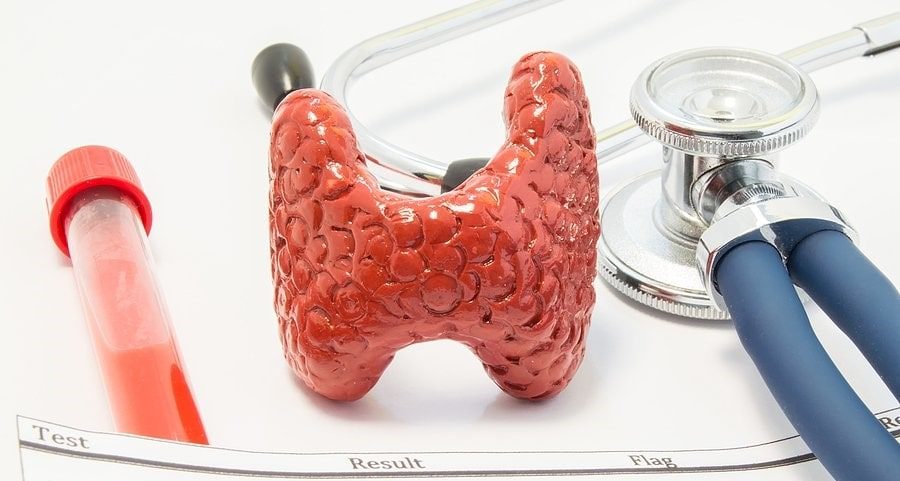Thyroid Testing in the Laboratory
Getting to know the thyroid panel in the medical diagnosis laboratory
Thyroid disorders are among the most common endocrine diseases that people refer to the medical diagnostic laboratory for their diagnosis. It may be interesting to you that after diabetes, it is the second most common metabolic disease related to endocrine systems. The importance of this issue is as much as it appears in the calendar, World Thyroid Day among various occasions. Therefore, in this article, we intend to take glance at the medical diagnostic tests related to this endocrine disease and how to interpret them for the diagnosis and treatment of various diseases.
The thyroid is a butterfly-shaped gland located in the front of the neck. It produces hormones that play a key role in regulating blood pressure, body temperature, heart rate, metabolism and the reaction of the body to other hormones.
The two main hormones produced by the thyroid are triiodothyronine, or T3, and thyroxine (T4). The gland also produces calcitonin, which helps bone cells process calcium and add it to the bones.
If the doctor suspects diseases related to the thyroid gland, he will refer the patient to a medical diagnostic laboratory to check some of the following items. The sample required to perform these tests is blood, and the method of performing them is immunoassay (ECL, CLIA, ELISA).
- TSH: This hormone is secreted by the pituitary gland and regulates the secretion of thyroid hormones. Therefore, its measurement is important to diagnose thyroid problems. Note that the amount of TSH secretion increases under the influence of TRH thyrotropin-releasing hormone, which is secreted from the hypothalamus.
- tT4: Total T4, which includes free thyroxine hormone and thyroxine hormone bound to blood protein carriers.
- tT3: Total T3, which includes free T3 hormone and T3 hormone bound to blood protein carriers.
- Thyroid Stimulating Immunoglobulin (TSI): A type of immunoglobulin secreted in people with Graves’ disease.
- Free T4
- Free T3
- T3 uptake: It is used to indirectly measure the binding capacity of thyroid hormone in the serum.
- (TG) Thyroglobulin: It is a glycoprotein secreted from the tissue of the thyroid epithelium, which is the precursor or storage form of T3 and T4 hormones.
- Anti-TG-Ab: Anti-thyroglobulin (Anti T.g) test is a test that helps to diagnose and monitoring autoimmune thyroid diseases (such as Graves’ goiter or Hashimoto’s thyroiditis).
- Anti-TPO-Ab: autoantibodies that activate the complement system, and this is a sensitive test for diagnosing autoimmune thyroid diseases such as Hashimoto’s thyroiditis, idiopathic myxedema, and Graves’ disease.
Payvand Clinical and Specialty laboratory as one of the most reliable laboratory diagnosis center in Tehran, with modern equipment and relying on the world’s latest knowledge and the use of kits from reputable international companies, it is able to provide specialized and sub-specialized laboratory diagnosis services with quality and respond to test results in the shortest possible time. To get additional information about the conditions before performing thyroid tests, click here or contact the doctors and officials at the Payvand laboratory.

Reviewing tests related to the most common diseases of the thyroid gland
In this section, we are going to introduce you to the hormonal changes related to the most common thyroid diseases that people refer to the medical diagnosis laboratory to check.
1- Hashimoto’s disease
Hashimoto’s is an autoimmune thyroid disease in which the thyroid becomes underactive due to the production of anti-TPO or TG antibodies. Therefore, in this disease, while reducing tT3 and tT4, an increase in Anti-TG-Ab or Anti-TPO-Ab is observed. On the other hand, the decrease of thyroid hormones in the blood will increase the secretion of TSH.
2-Primary Hypothyroidism
Primary hypothyroidism is when the thyroid gland cannot make enough thyroid hormone to support the body’s needs. Consequently, the TSH level is high because the pituitary constantly receives feedback that more thyroid hormone must be produced. As a result, the pituitary releases more TSH.
3- Secondary hypothyroidism
hypothyroidism is the secondary disorders among the most common endocrine diseases that people refer to the medical diagnostic laboratory for diagnosis and treatment. In this type of hypofunction, the problem is not the thyroid gland, but the disease caused by the dysfunction of the pituitary gland or hypothalamus. Therefore, during it, tT3 and tT4 decrease and the following two conditions may be seen:
- A decrease in TSH indicates the presence of problems in the pituitary gland. In this situation, the amount of TRH should be increased.
- If both TSH and TRH are decreased, the problem is with the hypothalamus.
4- Hyperthyroidism (type of thyroid hormone resistance)
This disease is similar to diabetes and during it, thyroid hormone receptors in the target cells have problems. Therefore, despite the fact that the amount of thyroid hormones in the body is high, the amount of TSH is also high.
5- Goiter or enlargement of the thyroid gland
Goiter is the abnormal growth of the thyroid gland without tumor origin. This growth is succored in order that the thyroid can maintain the level of T3 and T4 hormones normal in the blood. This happens when the amount of iodine available to this gland decreases. As a result, the amount of T3 and T4 decreases and subsequently the amount of TSH and TRH increases. An increase in TSH will cause the growth of thyroid cells and the enlargement of this gland.

6- Graves’ disease
In this disease, a type of immunoglobulin called TSI is secreted, which has the same effect as TSH. This immunoglobulin increases the secretion of thyroid hormones, and as a result, the amount of TSH decreases due to negative feedback. Meanwhile, negative feedback has no effect on TSI.
7- Pituitary gland cancer
Pituitary gland cancer causes hyperthyroidism and increase of T3, T4 and TSH.
8- Increasing the amount of aldosterone
If the patient suffers from hyperaldosteronism due to various factors, TBG decreases. As a result, tT4 will decrease but Free T4 will be normal.
9- Familial dysalbuminemic hyperthyroxinemia (FDH)
In this disease, the gene related to albumin is mutated and therefore the affinity of this carrier protein to T4 increases. Therefore, tT4 increases but the Free T4 level remains normal.
Note that things like taking estrogen and corticosteroid drugs, penicillin, salicylates, hospitalization, history of surgery, etc. can affect the test results related to the thyroid gland. Considering this issue, we must say that interpreting the thyroid test and the hormonal changes of this gland is considered a difficult task due to its extensive relationship with other factors and requires expertise in this field. Therefore, only a specialist doctor is allowed to interpret the test, taking into account the clinical symptoms and medical history of the patient. In the end, we hope that you have obtained useful information by reading this article.


